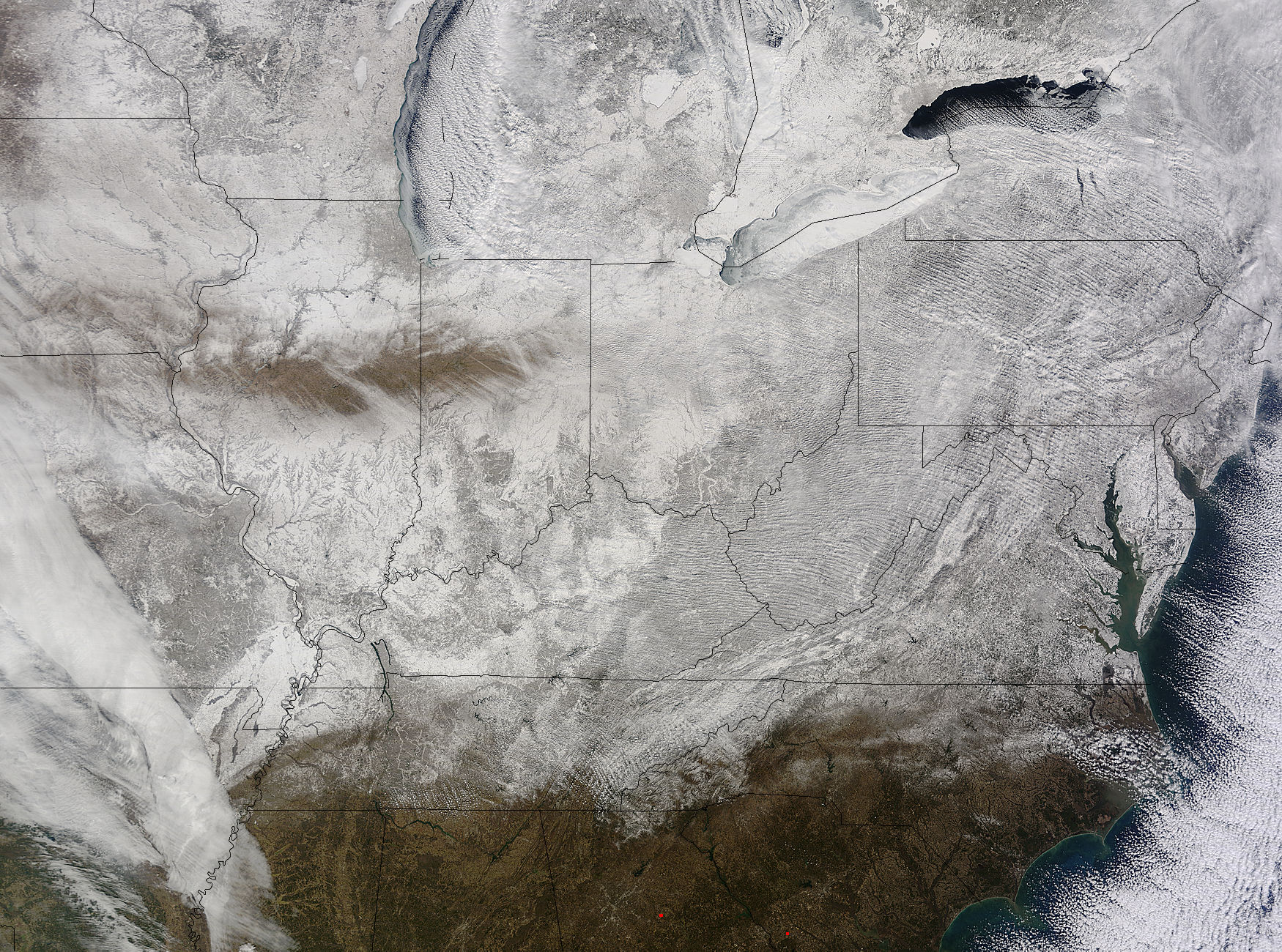Arctic Blast Blankets Eastern US in Ice and Snow (Photo)

Get the world’s most fascinating discoveries delivered straight to your inbox.
You are now subscribed
Your newsletter sign-up was successful
Want to add more newsletters?

Delivered Daily
Daily Newsletter
Sign up for the latest discoveries, groundbreaking research and fascinating breakthroughs that impact you and the wider world direct to your inbox.

Once a week
Life's Little Mysteries
Feed your curiosity with an exclusive mystery every week, solved with science and delivered direct to your inbox before it's seen anywhere else.

Once a week
How It Works
Sign up to our free science & technology newsletter for your weekly fix of fascinating articles, quick quizzes, amazing images, and more

Delivered daily
Space.com Newsletter
Breaking space news, the latest updates on rocket launches, skywatching events and more!

Once a month
Watch This Space
Sign up to our monthly entertainment newsletter to keep up with all our coverage of the latest sci-fi and space movies, tv shows, games and books.

Once a week
Night Sky This Week
Discover this week's must-see night sky events, moon phases, and stunning astrophotos. Sign up for our skywatching newsletter and explore the universe with us!
Join the club
Get full access to premium articles, exclusive features and a growing list of member rewards.
An Arctic blast sweeping across the East Coast, from Canada south to Florida, left much of the country blanketed in ice and snow this week.
NASA's Terra satellite snapped an image of the frigid winter weather from space on Thursday (Feb. 19). A near-record amount of ice covered Lake Ontario, and Lake Erie was almost completely frozen over. Snow covered the landscape from Kentucky to Maryland.
Many all-time records for low temperatures in February fell Friday morning, some set more than a century ago. Temperatures dove to minus 6 degrees Fahrenheit (minus 21 degrees Celsius) in Louisville, Kentucky, and 7 degrees F (minus 14 degrees C) in Charlotte, North Carolina. Cleveland, Ohio, hit minus 17 degrees F (minus 27 degrees C), falling below the previous record set in 1899. The bitter cold also broke records overnight in Macon, Georgia, dropping the mercury down to 18 F (minus 8 degrees C).
The National Weather Service forecasts another surge of Arctic air again today (Feb. 20) before temperatures warm up for the weekend.
The freezing cold is a striking contrast to the extreme heat in the West, where open water and thin ice nearly forced race officials to move the historic start line for this month's Alaska's Yukon Quest International Sled Dog Race.
And offshore of California, a notorious ridge of high pressure appeared this month, adding to the weather woes. This high-pressure ridge blocks rain-giving storms from reaching the parched state, worsening its ongoing drought. The ridge also helped force the jet stream into an extreme pattern that delivered the East Coast's blast of Siberian and Arctic air this week, meteorologists said.
Follow Becky Oskin @beckyoskin. Follow LiveScience @livescience, Facebook & Google+. Originally published on Live Science .
Get the world’s most fascinating discoveries delivered straight to your inbox.

 Live Science Plus
Live Science Plus










